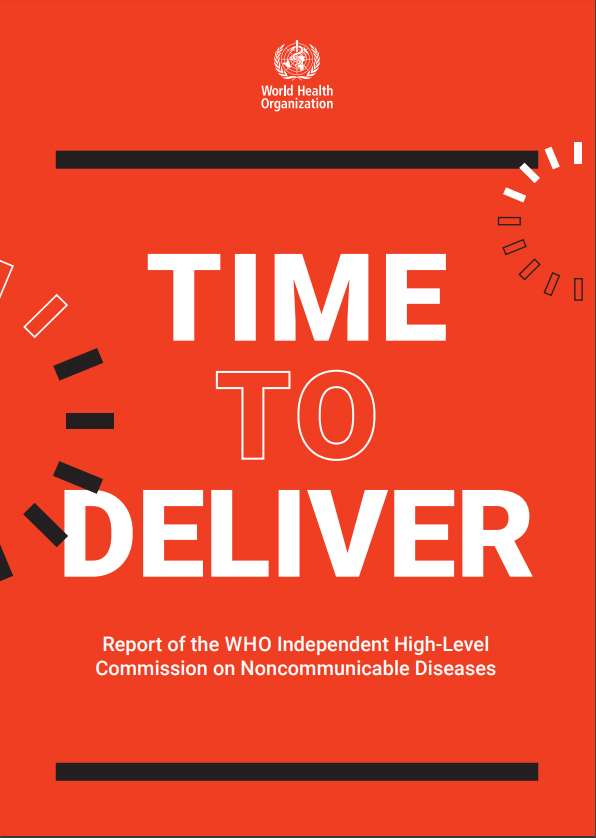Over 190 civil society organisations in joint statement:
Bolder actions needed to reverse the tide of NCDs and mental disorders
All evidence points to the same unpleasant reality: that if the current pace of progress continues unabated, by 2030 the agreed Sustainable Development Goal (SDG) target to reduce NCD mortality will remain a distant reality. This is the opinion of more than 190 CSOs that have sent a statement to WHO.
- This is a very clear and timely message from civil society from all over the world to UN Member States, comments Øystein Bakke from FORUT. – And having the FORUT programme profile in mind, we are of course very satisfied with the formulations on alcohol as a contributing factor to the tide of non-communicable diseases.
The CSO statement is a comment to the Report from the WHO Independent High-Level Commission on Noncommunicable Diseases (NCDs), titled “Time To Deliver”. This report was presented on the 1st of June in Geneva, Switzerland. Civil society strongly supports the Commission's recommendation for governments to scale up resources commensurate with the burden of NCDs.
 - A highlight of the report is the Commission’s call for ownership of national NCD responses from the very top; Prime Ministers and Presidents, comment the CSOs. - This is crucial, given the causes and solutions for NCDs extend well beyond the health sector and require a whole-of-government response.
- A highlight of the report is the Commission’s call for ownership of national NCD responses from the very top; Prime Ministers and Presidents, comment the CSOs. - This is crucial, given the causes and solutions for NCDs extend well beyond the health sector and require a whole-of-government response.
In their statement, the more than 190 CSOs highlight five specific points. Three of them are alcohol-related. In one of them, the CSOs appeal to governments to define the commercial determinants of health as a major obstacle to progress, mentioning Big Alcohol and Big Tobacco together with the food industry.
 The WHO Commission calls on governments to use taxes to reduce consumption of alcohol and tobacco, among other things. The CSOs support this by asking for a comprehensive approach to sugar, tobacco and alcohol taxes. In a third point from the CSO statement, the organisations call for a tougher stance on alcohol control.
The WHO Commission calls on governments to use taxes to reduce consumption of alcohol and tobacco, among other things. The CSOs support this by asking for a comprehensive approach to sugar, tobacco and alcohol taxes. In a third point from the CSO statement, the organisations call for a tougher stance on alcohol control.
“Harmful use of alcohol remains marginalised in the report in spite of its severe threat to public health worldwide, with links to NCDs, gender-based violence, road traffic injuries, and mental health disorders. Taxation and the regulation of marketing and sales are critically important interventions that need to be scaled up, but have been consistently blocked by the alcohol industry in many countries”, says the statement.
The list of subscribers to the statement includes civil society organisations of all kinds and from all corners of the world, and the initiative has been coordinated by the NCD Alliance.
RELATED ARTICLES
- WHO consultation on global alcohol strategy and the way forward
- SAAPA applauds WHO position on no industry collaboration
- SAFER – a new WHO initiative to boost national alcohol policy processes
- UN High-Level Meeting on NCDs misses the target
- WHO Launches Global status report on alcohol and health 2018
- New resource tool on alcohol taxation from WHO
- Civil society networks call for stronger action against non-communicable diseases
- Alcohol brought up in WHA NCD debate
- WHO Americas publishes alcohol and health report
- Integrating national policies on the harmful use of alcohol, gender-based violence and HIV

